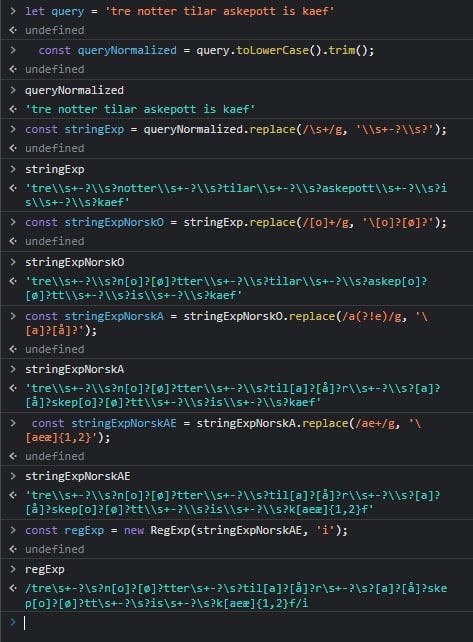I’m not a very experienced developer, my journey in coding started at the university studying C++ and Python 👨💻 and I completed my Master’s degree a little short of a year ago.
So I came to development in the 2nd year of the master's degree program. Initially, I started looking for a company for my internship. I’ve sent my CV to a few companies and got accepted by Filmgrail. It became the place for me not only to get my first work experience but to also completely change the course and transition to low code. And, man, it was brutal.
Switching to a low code
Switching from C++ to Mars was initially challenging for me, as I had no previous experience in web development.

I was learning the basics of layout and JavaScript while completing a test task, but thanks to the mentorship of my colleague, I was able to quickly learn and develop my skills.
My mentor initially devoted a lot of time to me, which may have affected her own tasks. In the first three to four weeks, I received two to three hours of mentorship from her every day. After that, the time was reduced to one hour per day. By the third month, I was only asking her questions two to three times per week, and by the fourth month, it was down to just one question per week. Now, my questions are very rare and tend to focus on more specialized topics, such as dynamic regular expressions.
After about a month, I was able to create and launch my first features on the production site.
Now, the transition from C++ to Mars seems logical and straightforward, although I do feel that better documentation would have made the process even smoother.
Today I only have eight months of commercial experience at Filmgrail and I am working with technologies such as Mars, JavaScript, CSS, HTML, Bootstrap, VUE.js, jQuery, MongoDB, and BEM.
So, what is Mars?
All current projects in Filmgrail are dedicated to cinemas. We make cross-platform web applications in our IDE - Mars.
MARS is a low-code platform for building web and mobile applications. It allows the creation of applications using micro apps and offers the flexibility of using customized code interface (JavaScript and other frameworks) as well as the features of no-code. Mars is great for the film industry because we can make demos for new clients in two clicks - import an existing project and customize it for the client.
From the last interesting: I wrote dynamic regular expressions to improve the search. I will give an example of a task. We have the original movie title, which is in the database as: “tre nøtter tilår askepott is kæf”
We type in a search with errors and write: “tre notter tilar askepott is kaef”
Following is my code:

This is a dynamic regular expression.
Example of work on the screenshot of the console:

For a given query, we dynamically get the following regular expression tre\s+-?\s?n[o]?[ø]?tter\s+-?\s?til[a]?[å]?r\s+-?\s ?[a]?[å]?skep[o]?[ø]?tt\s+-?\s?is\s+-?\s?k[aeæ]{1,2}f and as a result, we compare two titles at once, correct and incorrect!
not correct with errors: tre notter tilar askepott is kaef and the correct original: tre nøtter tilår askepott is kæf.


Thus, even if the user makes a mistake in writing a movie, the search will still work correctly!
One of the main advantages of Mars is that it allows web-based development, which reduces the load on hardware compared to running everything locally. Some of my friends who work with React, for example, need to use powerful machines to comfortably work on their complex projects. But I can get the work done even on a smartphone. No joke, it’s working on my iPhone. One of the interesting tasks recently was working with OpenAI. I'm using ChatGPT to automatically generate movie descriptions.
Another advantage is that I can learn the best practices by looking at other people's code that has already been written on other projects. A significant portion of tasks can be solved by searching for similar code that has already been written, which I find very helpful for developing my own coding style. Initially, I did feel that code review was lacking, but this has since been addressed.
The last (in this article) advantage of JavaScript is its popularity, which means that there are a lot of ready-made solutions and libraries available, and it's generally easy to find job opportunities. However, the downside is that there is also a lot of mediocre code and non-serious developers, so it's important to be careful when choosing people to work with.
And one more. I think it’s really easy to start. If a person has a technical background and has completed JavaScript courses, I believe it would be possible to bring them up to speed on non-complex tasks on Mars within two months. However, if the person has prior experience in web development, they may be able to reach their full potential within a week.
So what’s next?
I am currently experimenting with a number of technologies, such as neural networks, Mubert-Text-to-Music, Midjourney, and others. These are somewhat different from web development, but I am interested in exploring the potential intersections between these technologies.

For example, Mars 4 is already AI-powered, which I find very interesting.
If I had to create a product without Mars, such as Instagram, for example, I would consider using React. My mentor has mentioned that it is similar to Mars in many ways, so it would allow me to compare and gain a deeper understanding of both technologies. I think it is worth investing time in learning React for this reason.
So, yeah, I think Mars is a fantastic platform to start programming and development inevitably heads to platforms like this - with AI, no-code features, micro apps, etc.
